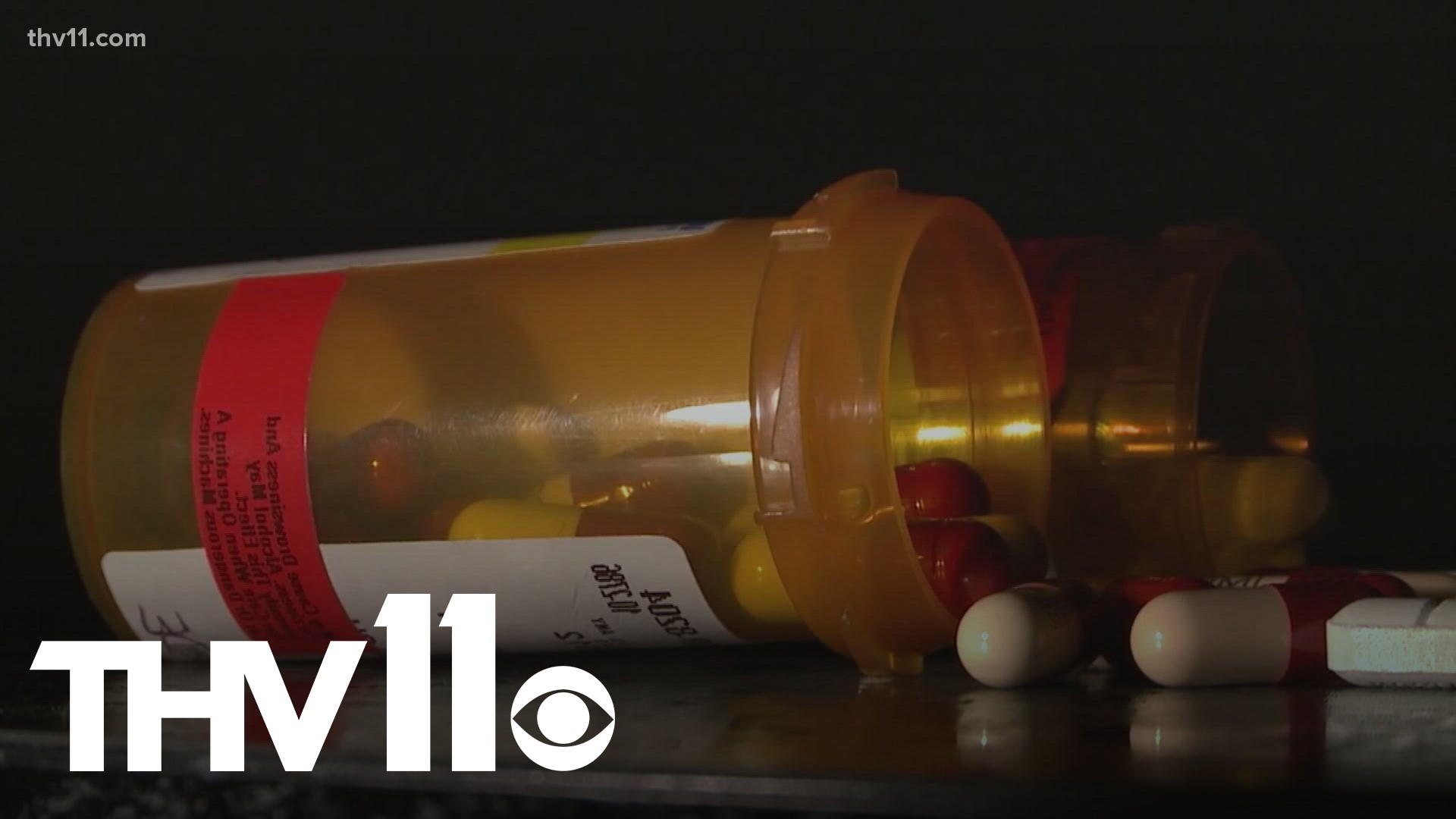LITTLE ROCK, Ark — For Red Ribbon Week, the Arkansas Department of Education (ADE) partnered with Arkansas PBS for "7 Days: The Opioid Crisis in Arkansas," a documentary highlighting stories across the state.
The documentary captivated a room full of people that sat inside the building's auditorium, but the 53-minute film doesn't scratch the surface of the hundreds of Arkansans that have been impacted by opioids.
"It started with the pills where I was just taking them like I was suppose to, and then you build a tolerance, so then I'm taking two or three or four," said Sean Willits, a peer recovery specialist in Hot Springs.
He struggled for 11 years before finally seeking help.
He was in the Army and started taking pain medication for his knees.
"My tolerance keeps building no matter how many I take by mouth. They're not working so then I'm snorting them and then that starts not working, so then I start injecting them," said Willits.
He was a part of a panel to discuss the film that he was featured in.
Representatives from ADE, the Little Rock-FBI, DEA, and Arkansas Drug Director’s offices also participated in the panel discussion.
"The truth is, we do not think we can arrest our way out of this problem. Matter of fact, we know we can't arrest our way out of this problem," said James Dawson, an FBI Little Rock Special Agent in Charge.
He said focusing their efforts on educating people against drug use is the most effective way to stop the drug use cycle.
"We can't arrest all of them. There's no way, and really the American people shouldn't want us to," said Dawson.
DEA Assistant Special Agent in Charge, Jarad Harper said over 94,000 people have overdosed in the U.S and just for the state of Arkansas, this year alone it's over 900.
"That includes our kids at these colleges and high school level kids that are taking Xanax, or Adderall, or Percocet, or Vicodin thinking that it's something that's industry standard and it's laced with Fentanyl," said Harper.
Arkansas Drug Director Kirk Lane said the state is 2nd in the nation for dependency on opioids based on prescriptions.
"Right now we have a 55% increase in overdose rate compared to 2019. That's due to the impact of COVID. That stress, the anxiety," said Lane, "Both the national and the state are coming down and it's based on education. Prescribers making good decisions and having the ability to do that."
Red Ribbon Week information including classroom resources can be found HERE.

